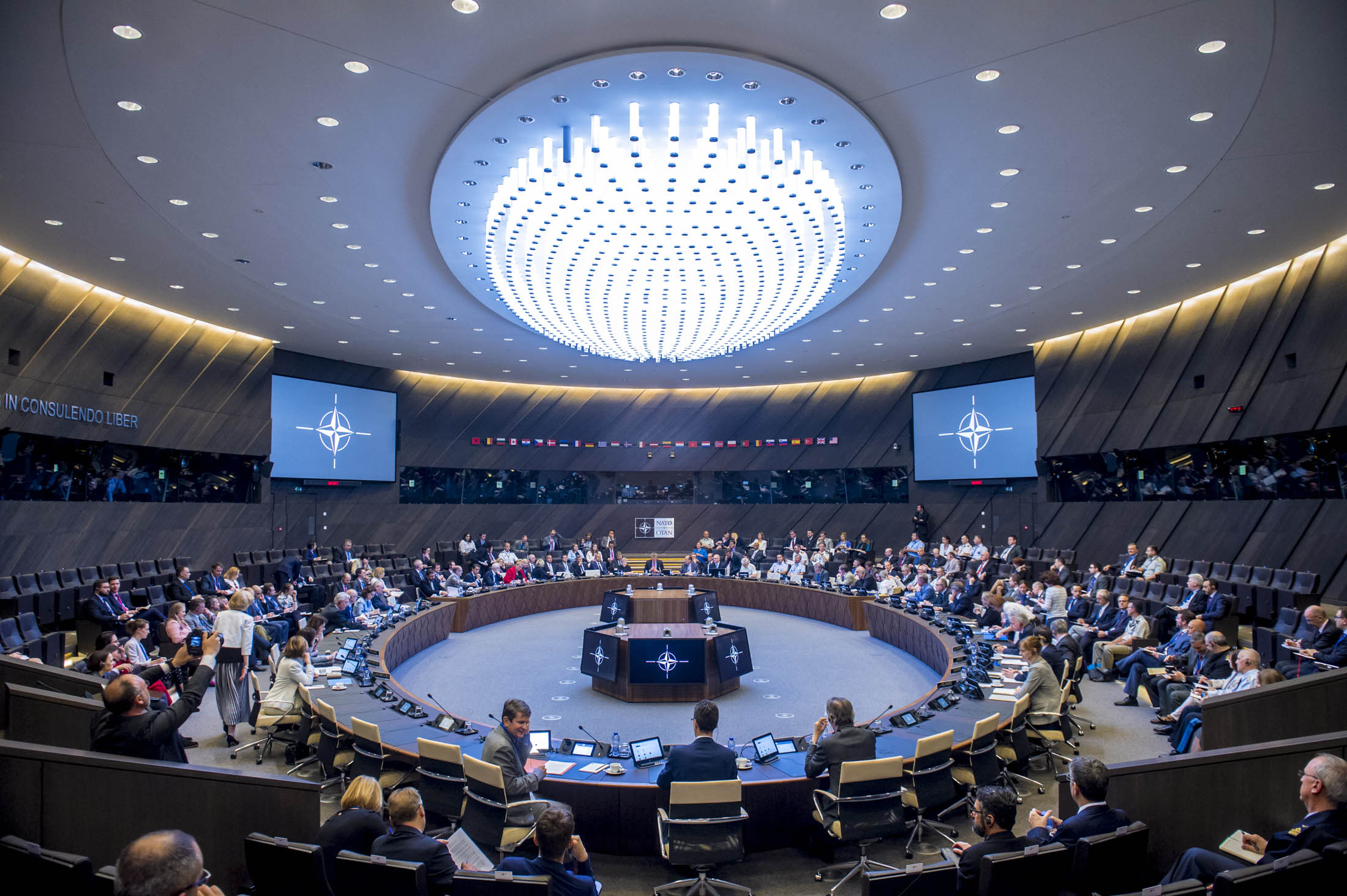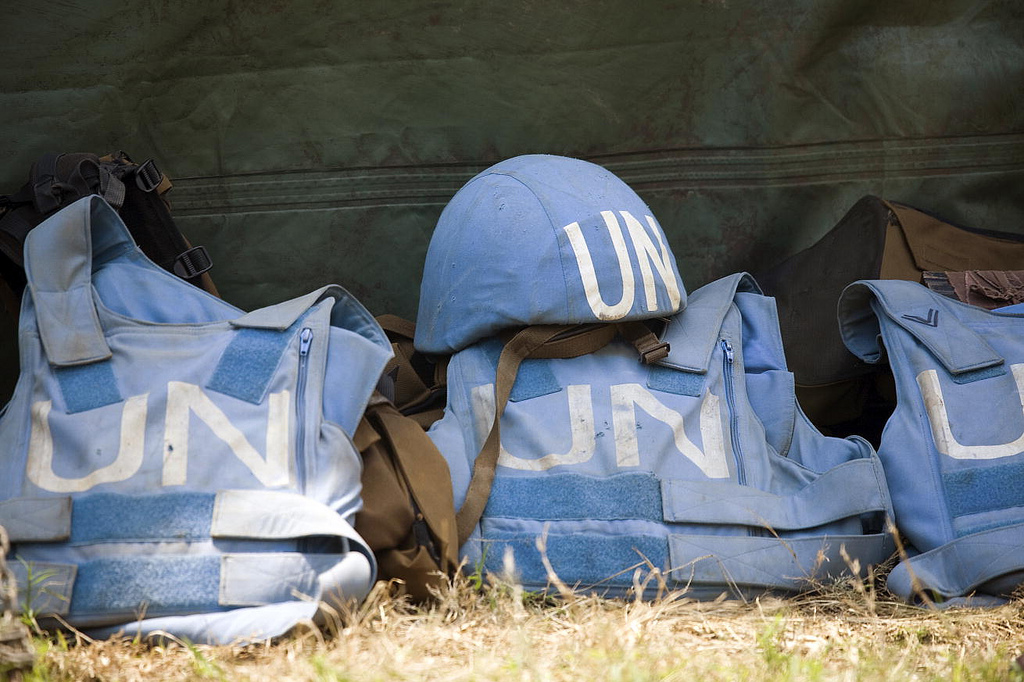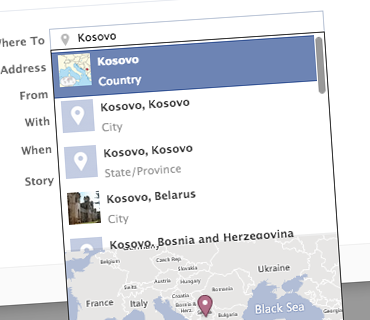Guest post by Mark Nieman and Doug Gibler
Russia’s invasion of Ukraine set off a security spiral in Europe. Despite US President Biden’s pledge to “defend every inch of NATO territory,” Poland increased its military budget by a whopping 60 percent and asked to have US nuclear weapons based on its territory. Estonia, Lithuania, and Latvia also announced sizable defense increases, with Latvia re-instating compulsory military training.
Why didn’t Biden’s pledge reassure these NATO members? Is the alliance’s famed Article 5 promise—that an attack on one member is an attack on all—a less than ironclad guarantee?
NATO is an unprecedented and unique organization of formidable military might. It is also an alliance made up of democracies, which are generally considered more reliable alliance partners: they form more lasting alliance commitments, and honor them at higher rates than autocracies. So why then are the NATO members most vulnerable to Russian aggression also the most skeptical about NATO’s commitment to defend them?
Democracies are often put on a pedestal. It is a truth (almost) universally acknowledged among scholars of international relations that democratic countries are qualitatively different from authoritarian regimes—nicer, better, and more cooperative—especially when they interact with one another. Democracies do not fight wars against other democracies, though they are just as likely to fight autocracies as autocracies fight one another. Democracies are more likely to win the wars they do fight. And democracies are more likely to trade with other democracies.
But our research suggests that what drives the effectiveness of alliance isn’t democracy or shared values. Our recent article in The Journal of Politics shows that alliance reliability is driven by strategic geopolitical context and opportunities to renege, rather than domestic institutions.
What exactly would make democratic countries any more reliable allies than autocracies? Standard arguments focus on the nature of democratic norms and institutions, often pointing to their legalistic culture, foreign policy stability, or concern for international reputation. All of these explanations are valid, and many have been backed with sound empirical analysis. But they miss a key difference between democracies and autocracies: geography. A quick glance at a map reveals heavy geographical concentration among democratic countries. What distinguishes these areas of concentration—Western Europe, in particular—is a long history of violent conflict, which, once resolved, has been followed by a long history of peace. The geographical areas of concentration of authoritarian countries, in contrast, are characterized by periods of relative peace, followed by continuous or intermittent violence. This violence often centers around a small set of unresolved contentious issues, with those related to conflicting territorial claims being the most violent.
This geopolitical context matters for tests of alliance reliability: alliances are most likely to be called upon and violated when their geopolitical environment is hostile. In contrast, alliances in peaceful environments are less likely to be called upon, so they are less likely to be broken. So while democracies might appear to be better alliance partners, this is only because their commitments are rarely tested. Indeed, peaceful environments may themselves produce democratic counties. Without the threat of attack by a neighbor, states can devote fewer resources to the military, concentration of power devolves, and focus more on economic development and diversification. Threatening environments, in contrast, encourage greater militarization and power concentration, increasing the prospects of a garrison state and authoritarian regimes. To paraphrase Charles Tilly, war makes the state, but it is much more likely to make an authoritarian state than a democratic one.
In short, once the geopolitical environment is accounted for, democracies have the same reliability as other types of regimes. Instead, it is the strategic environment that seems to best predict whether alliances are honored: the riskier the environment, the more likely allies are to abrogate their commitments.
So are Finland and Sweden right to rush their NATO accession in response to the threat of Russian aggression? Will a formal membership make them safer than a mere promise? Yes, but this answer has nothing to do with the virtues of democracies. Alliances deter aggression, but they do so through the aggregation of capabilities rather than any enhanced commitments stemming from the domestic institutions of its members. Shared democratic institutions did not prevent France from abandoning Czechoslovakia in 1938. Russia’s invasion of Ukraine has given rise to similar fears of abandonment among NATO’s eastward members. These countries rightfully question whether Germany and France would come to their defense should they become the next target of Russian aggression.
Unable to trust their democratic allies, Eastern European countries are openly calling for assurance from NATO’s long-standing bedrock, the US. When push comes to shove, NATO’s junior partners are smart to not put their faith in a piece of paper and demand more tangible acts of support, such as troop deployments, training, and arms transfers. A promise, even by a democratic state, must be backed by action.
Mark Nieman is an assistant professor in the Department of Political Science and Trinity College at the University of Toronto, and an affiliate of the Data Sciences Institute. Doug Gibler is a Professor of Political Science in the Institute for Social Science Research at the University of Alabama.








1 comment
The elephant-shaped elephant in the room is that the dominant political party in America is ambivalent towards NATO and has become increasingly supportive of Russian interests.
NATO only works as long as American animosity towards Russia exceeds American indifference towards Europe. With the Americans becoming more sympathetic to Russia and more hostile to Europe, it is entirely reasonable for European countries to increasingly take their security concerns into their own hands.